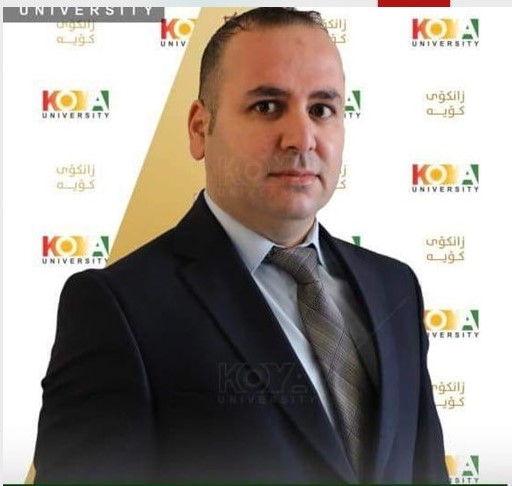Prof. Nali Jawad Hamad is the head of the Malay Gawra Research Center Department. He is a professor in the Department of Geography/ Faculty of Education at the University of Koya. He qualified with a Bachelor’s degree in geography at Salahaddin University (Erbil). Later, he completed his MA in Mountain Geography in (2009) at Koya University. Dr.Nali obtained his PhD in Geomorphology from Koya University. His research direction is toward geomorphology, hydrology, GIS, and RS.
Vision of the Mullahy Gawra Center
The center was established in 2013 to encourage and develop academic education research. It aims to help staff members and primary/professional researchers publish their academic achievements in prestigious, high-impact journals. The department also offers several particular courses in the fields involved in research. It provides opportunities to push scientific knowledge through using technical skills and subject matter knowledge for specific research questions.
Activities
To develop the quality of research conducted in departments across the Faculty of Education, this department has recently tackled several supportive/innovative activities to enhance the quality of academic research.
- Within the framework of the strategic plan that Koya University has developed for the next few years, the Mullahy Gawra Center will devote full attention to research writing by supervising the organized groups for this purpose from different departments.
- Determine the overall, scientific, and cultural objectives of research, based on need and formulate clear objectives, to increase the cognitive quality of research.
- Organizing workshops on high-level research writing methods and developing a spirit of cooperation, besides, promoting scientific competitiveness counted as another major task of this center.
- Special attention to the subject of Kurdish studies among orientalists and Kurdish researchers in particular, nowadays and in the past. In order to present the cognitive and ontological problems of knowing Kurds from the perspective of others and from the understanding of Kurds themselves, which is one of the main themes and goals of the establishment of the Mullah Research Center.
- Interdisciplinary collaboration: Promote collaboration among different scientific departments and disciplines to achieve ground-breaking research results.
- Promoting and creating favorable environments for young researchers: Developing programs to support young researchers and involve students in research activities.
- Efforts to fund research projects based on scientific, cultural, and intellectual innovation that can have a positive impact on science and community awareness.
- Efforts to provide modern equipment and technology to improve research capabilities: for instance, the construction of a linguistic laboratory with modern analytical tools, the establishment of a geoinformatics laboratory for cosmological analysis and spatial issues, and research on human-environmental change.
- Founding a platform for the exchange of ideas and cooperation between different research groups and internationalization of research.
- working for publishing a seasonal or annual journal, dedicated to the center.
